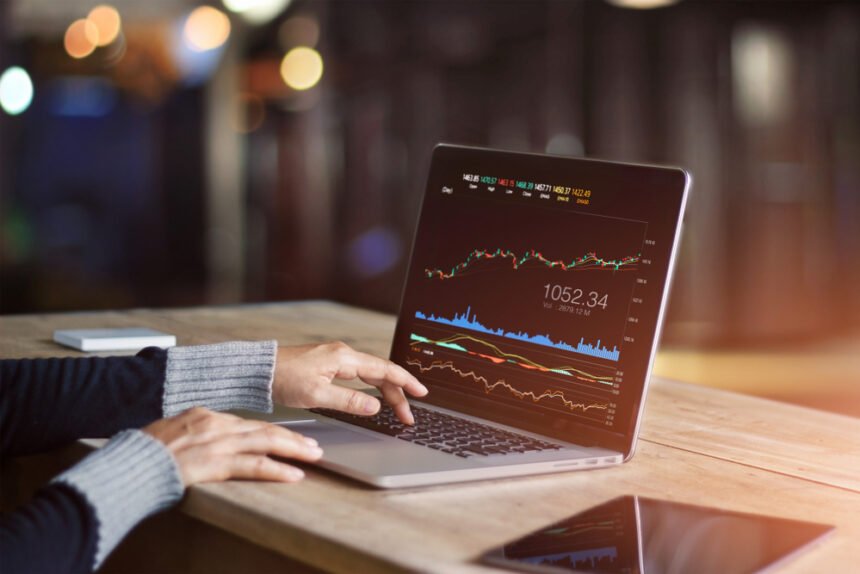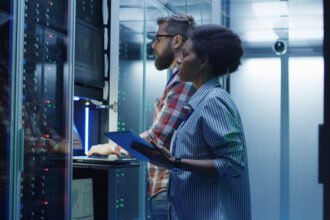Data analytics has made forex trading easier than ever. Unfortunately, some traders are reluctant to take advantage of these opportunities, because they don’t know how to use new data analytics tools to their advantage.
The good news is that there are a lot of great ways to use new AI technology if you plan properly. You just need to educate yourself about the benefits of this technology and its role in forex trading.
AI and Data Analytics Changed Forex Trading Forever
It looks like everyone is ready to start trading especially after a bumpy and unexpected turn of events on the WallStreet and RobinHood app. Everyone became a trader last week, and while it happened suddenly, it doesn’t mean you should do it just because everyone is doing it and joining the game without even knowing the rules.
The truth is that while big data technology has helped with forex trading in a lot of ways, it is important to understand how to use this technology effectively.
Whether you want to join the snowball effect, the internet has begun, or instead want to become a trader so you can save up money or have another source of income. Here are the essential rules and practical tips every beginner trader should know. You need to follow them carefully, because having access to some data-driven apps is not enough on its own to make you a successful trader.
Our goal is not to overwhelm you, which usually happens when a person starts googling about trading. That’s what makes them quit before they even began, or they come across a scam and end up badly. We will give you something to think about, let it sit for a few days, and tips for searching on the internet. It will make it easier for you to decide what you want and with whom you want to work with. Let’s begin!
What is Forex?
Should we go through the basics again? Let’s do it, just in case. Forex or Foreign Exchange is a trading market with a huge advantage by being decentralized thanks to operating on the internet. Because of this, many people got the opportunity all over the world to step into trading. It’s no longer a matter of whether you are wealthy or want to invest only 100 dollars. Any authority doesn’t control the market, and it gives you a chance to trade as long as you have a stable internet connection and any device such as smartphone, tablet or a computer. What makes it great is that it works 24/7 (thanks to different time zones), excluding the weekends (when everybody usually revises the week and pays attention to what could happen on Monday). Forex gives you much more opportunity and flexibility, putting you under less stress than an “ordinary” trading market would.
How to start using data analytics to thrive as a forex trader?
By revising finances, you are currently having. Money management is of utmost importance if you want to progress in any field regarding money. That is why we advise taking some free time, sit down and write your income, expenses (monthly), and debt. See if something doesn’t go up or you feel like you always have less than you earn, and you don’t know how it happens. If it a constant occurrence, you might want to recheck your spendings. Maybe you are spending (we know you’ve heard it many times, but it’s the truth) more than you think on take-out, coffee or you indulge in online shopping when you are under stress. What is your coping mechanism when you are under stress? It can show you how to start saving more, and where you could end up trapped once you begin trading. If you shop when you are emotional, you might act impulsively on the market, which is not a good thing. You want to be in control and not go as the wind blows. Having a goal is what gets you where you want to be, especially as a trader. A study shows that around 80% of traders fail quickly and lose money if they enter trading without having a clear goal in sight. That includes a trading plan, but more on that later. It’s essential to think about why you want the money for, and how much you can afford to invest without damaging your monthly spendings.
The good news is that big data tools can help with all of these issues. Big data helps forex traders in a variety of ways.
You can use big data to identify unique trading opportunities. As we pointed out before, big data helps you anticipate trends in the forex markets. You can also use big data to assist with budgeting and other important aspects of your trading strategy.
How to Avoid Scams
It’s easy to fall for one, but it’s as easy to avoid them, as well. It goes by simple logic – someone reaches out and promises you the world? It’s not likely to happen. Earning thousands with almost no investment in a month? Not realistic. Just invest $150, but do it right now because you’ll miss the chance of the century? Not quite. Flashy ads popping out, where (by the way, hired actors, not clients), are saying they can’t believe you much they’ve earned, so they left their job in a matter of months? It’s not going to cut it. Do you see the pattern here? Everything is blown out of the proportions, and most importantly, tells you everything you would want to have right now. Everybody would! It would be nice if somebody gave you a huge stack of cash without any payback obligations, and you could do whatever you want? You know, a person that nice deserves a Nobel prize because peace would be inevitable. We would cure hunger. Why is that not the case, though? Because it is what – a scam. Scammers like to play with your thoughts and desires. Whether you are desperate for money or have a huge debt, even if you are completely fine with your earnings – you’d still want it.
This is an area where big data can be somewhat helpful, because a lot of predictive analytics tools help assess the probability that you are about to be scammed. You can use predictive analytics tools for fraud scoring with emails from forex providers and to identify suspicious activity on websites run by such companies.
Unfortunately, the benefits of using big data to avoid being the victim of a forex scam are limited. You need to use your own judgment.
Finding non-scam companies
You will need google for this, and it won’t take many clicks. There are regulator websites, whose purpose is to update their trustworthy list of regulated and licensed companies that do trading. It is as simple as that. You can search for a company on the list, and if it’s not there, it’s a scam even if there is a “stamp” on their website claiming they earned the prize for best brokerage in 2019. Pay attention to it, because if a “brokerage” calls you, they will try to persuade you to invest right away because you were checking out their website. You have an absolute right to step away, think about it (and google them in the meantime). You are not obliged to invest lots of money, even when you start trading. Finding a good broker is also relatively easy. You will have to check out broker reviews since they are helpful and they can tell you right away from their portfolio and prove if they are scammers (if they almost don’t exist anywhere on the internet).
Learning is constant
The key to success in trading is being there in the long run and not investing heaps of money initially. You will probably start by talking to your broker about your goals, developing a business plan and then trying out the market. Beginners usually start with currency pairs, as they are relatively easy to grasp and won’t give you much anxiety. They are great because even if you lose money, you won’t lose much and it won’t affect you badly. Remember, you are trying out, it’s your money, and there is no need to rush, but you will need to learn a lot. Be careful, though. You don’t want to get a burnout, so learn along the way, read books, listen to podcasts, see what traders that you admire are doing, and listen to your broker, but also ask questions. Good luck!
Big Data Helps With Forex Trading But Only to an Extent
There are a lot of great reasons to invest in big data technology as a forex trader. Big data helps forex traders identify trends and avoid scams. However, it can only go so far. At the end of the day, you need to use common sense and understand the fundamentals.










